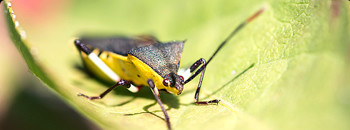
Ragweed season is in full swing and will affect about 10 to 20 percent of Americans. How much do you know about these pollen producing plants? Test your knowledge and learn how to best avoid some of the annoying and painful symptoms!
Ragweed grows in rural areas and does not affect people living in urban environments. True or False?
False. While ragweed is more common in rural areas, ragweed grows throughout the United States, in fact, one plant can produce a pollen count of up to 1 billion! The air carries the pollen and has been measured to transport it as far as 400 miles out to sea. The plants are often found along roadsides, river banks and vacant fields. It is the plant’s pollen that causes ragweed allergies, or hay fever, which becomes irritating as soon as the plants release pollen into the air and continues until frost kills the plants. Common hay fever symptoms include eye irritation, runny or stuffy nose, sneezing and itchy throat. It also can cause asthma attacks, sinusitis, headaches and impaired sleeping.
There is no cure for a ragweed allergy. True or False?
True. Many Americans suffer from hay fever due to allergic reactions to pollen producing plants, such as ragweed. However, there are steps to help avoid contact with pollen and ways to prevent hay fever.
- Tracking pollen counts can help you prepare for the symptoms. Online resources and news media usually provide this information for specific areas. Try to avoid spending increased time outside during high pollen periods. Pollen is usually highest between 10 a.m. and 3 p.m.
- Control ragweed in and around your home to help alleviate symptoms. Prevent the growth of this noxious weed by regularly maintaining outdoor spaces, which can help keep pollen levels down in your community. If you start to see the plants pop up anyway, contact your local extension office or lawn and garden center for the best treatment methods for your area.
- Antihistamine medications work well to relieve hay fever symptoms. Speak with a doctor or pharmacist to help you discover if an antihistamine option would work for you.

